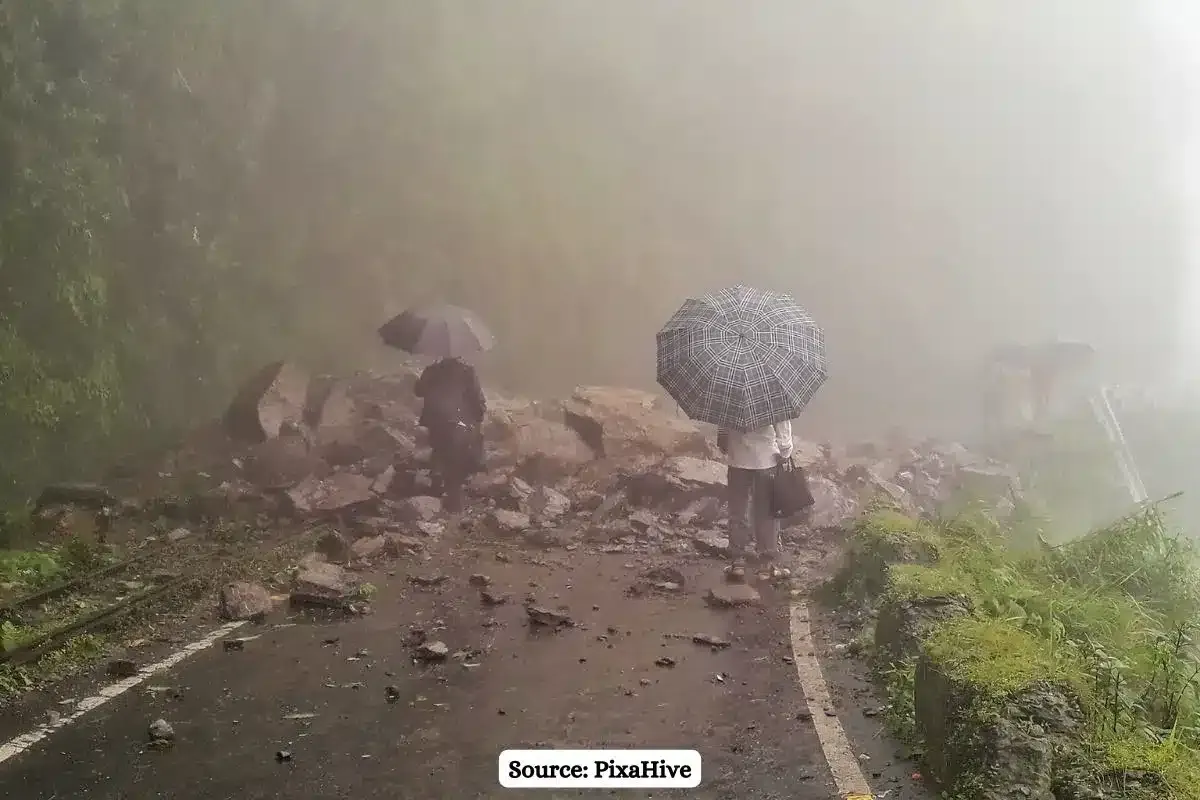Environmental and social organizations in India are uniting under the banner of People for Himalaya to demand a complete ban on major development projects in the fragile Himalayan region. More than 60 such organizations are calling for a halt to projects including railways, hydropower, and four-lane highways.
The coalition has issued a five-point demand letter in the lead-up to the Lok Sabha elections, urging for a democratic process involving referendums and public consultations before the commencement of any major projects such as railways, hydropower, and highway expansions.
The collective asserts that the very existence of the Himalayas is threatened by these mega projects. Renowned environmentalist Sonam Wangchuk, speaking at a press conference, highlighted the exploitation of the Himalayas and the resultant natural disasters faced by local communities. He emphasized the misuse of taxpayers’ money for rehabilitation efforts following such disasters.
Sonam Wangchuk said, “While industries exploit the riches of the Himalayas, the local people bear the brunt of disasters. The government uses taxpayers’ money for rehabilitation efforts, yet those who reap the benefits are not held accountable.”
Wangchuk, known for his 21-day climate fast advocating for Ladakh’s inclusion under the Sixth Schedule of the Constitution, received substantial public support for his cause. He said, “The region’s fragility may not be fully understood by bureaucrats from Chandigarh or Lucknow. Even the best of all could make mistakes while the worst of all could sell it off to industries.”
Five-point charter’s main demands
- Strengthen the regulation, monitor, and plan land use, land-use change and forestry in the Himalaya, which includes imposing a moratorium on all mega infrastructure projects such as tunnels and hydropower projects.
- Ensuring communities’ constitutional, land, and forest governance rights: this entails enforcing laws for decentralized governance like the Scheduled Tribes Act 2006, and safeguarding pastoral minorities and their migration paths.
- Encourage transparency, share knowledge and exchange so that governance can also involve indigenous knowledge and local communities.
- This involves implementing a legal mechanism for the proper execution of SC/ST Sub plans in mountain states to build resilient, equitable and sustainable mountain societies.
- Ensure that a strong disaster response system is ready, with full and time-bound support from the union government whenever extreme events occur.
Similarly, Mohan Saikia of the North-East Samvad Manch voiced concerns about the ongoing large-scale hydropower projects along the Brahmaputra river and its valleys, which are being executed without local consent, potentially leading to severe consequences and natural disasters.
“The far-reaching impact of these infrastructure projects is manifested in the form of floods,” Saikia said.
Guman Singh of Himalaya Niti Abhiyan and Atul Sati of Joshimath Bachao Sangharsh Samiti pointed to the Beas floods and land subsidence in Joshimath as direct results of such policies. Anmol Ohri from Climate Front Jammu warned that indiscriminate road construction in glacial regions and development projects along riverbanks are escalating the risk of floods.
Anmol Ohri, from the Climate Front Jammu, warned that the risk of floods in the region will increase due to mindless pilgrim tourism, road construction in glacial regions, and riverfront development projects. The organisations also demanded that state laws and regulations, such as the strengthening of the Van Panchayat Rules in Uttarakhand, should be used to protect the private and community resource rights of nature-dependent communities.
“We should join hands together and fight this aggression… I will only call it aggression because how can someone from Lucknow decide our policy,” Raja Muzaffar Bhat, a writer, independent researcher, and activist based in Jammu and Kashmir, questions. “We know what our policy should be. We have learnt from our ancestors…these are our treasures, our ecological, geological treasures,” he said.
Bhat stated that eight cases of environmental destruction in Jammu and Kashmir are pending at the National Green Tribunal. He attributed this to the failure of institutions supposed to enforce and implement the country’s environmental laws. Despite receiving fat salaries to do so, the Pollution Control Board, the State Environment Impact Assessment Authority, the forest department, and urban local bodies have not implemented these environmental laws, according to him,” Bhat said.
The Campaign said that the People for Himalaya Campaign will publicize its demand charter through media campaigns and through letters to political parties in the days to come.
Keep Reading
Chhatarpur: Encroachment, and pollution grips ponds, water crisis deepening
Hyderabad drinking water crisis, tanker price surge to 1500 Rs
79% Blocks in Punjab ‘over-exploited’: North-India’s groundwater crisis
MP: Barwani tribals, water crisis, and traditional ‘paat’ irrigation
Follow Ground Report for Environmental News From India. Connect with us on Facebook, Twitter, Koo App, Instagram, Whatsapp and YouTube. Write us on GReport2018@gmail.com and subscribe our free newsletter.
Don’t forget to check out our climate glossary, it helps in learning difficult environmental terms in simple language.






